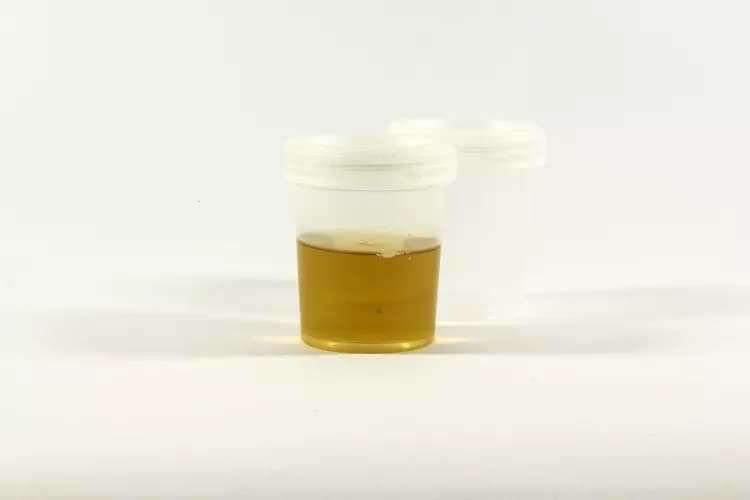What are the other Names for this Test? (Equivalent Terms)
- MB Urine Test
What is Myoglobin Urine Test? (Background Information)
- Myoglobin is a protein in muscle cells that binds oxygen for use in energy production
- The role of any muscle is to contract and relax. This causes different actions depending on the type of muscle. There are 3 muscle types, grouped according to their distribution and characteristics:
- Skeletal muscles move the body through space and regulate the opening and closing of passageways. The biceps and some sphincters are skeletal muscles. Skeletal muscles are under voluntary control
- Cardiac muscles circulate blood and are found only in the heart
- Smooth muscles provide tissues with elasticity and support. They are found underneath the skin, surrounding the intestines, and in a variety of other places
- Skeletal and cardiac muscles are striated. This means that they are organized in repeating structural units. As opposed to non-striated smooth muscles, skeletal and cardiac muscles contain significant levels of myoglobin
- When damaged, the membranes of muscles leak their inner contents to the surrounding area. This includes myoglobin. Thus, an elevated myoglobin level in the blood indicates damage to muscles somewhere in the body
- Myoglobin is excreted via the kidneys through the urine. Excessive myoglobin levels may cause myoglobin buildup in the kidneys. This is toxic to the kidneys and may cause kidney damage
- The Myoglobin Urine Test is a test to assess the levels of myoglobin in urine. It is used to identify the presence and timing of muscle damage. However, it cannot determine the location of muscle injury/damage
What are the Clinical Indications for performing the Myoglobin Urine Test?
Following are the clinical indications for performing a Myoglobin Urine Test:
- Assessing the severity of muscular trauma and muscle diseases
- Diagnosing and assessing the severity of a recent heart attack, which is marked by:
- Chest pain or discomfort
- Radiating pain to the jaw and face
- Heartburn and indigestion
How is the Specimen Collected for Myoglobin Urine Test?
Following is the specimen collection process for Myoglobin Urine Test:
Sample required: Urine
Process: Urination into a sterile container.
Preparation required: No special preparation is needed prior to the test.
What is the Significance of the Myoglobin Urine Test Result?
The significance of Myoglobin Urine Test is explained:
- Increased myoglobin levels may indicate:
- Rapid atrophy, possibly due to:
- Muscle-wasting disease
- Viral infection
- Recent muscle trauma
- Decreased myoglobin levels may indicate:
- Myasthenia gravis
- Polymyositis (presence of antibodies to myoglobin)
- Rheumatoid arthritis
The laboratory test results are NOT to be interpreted as results of a "stand-alone" test. The test results have to be interpreted after correlating with suitable clinical findings and additional supplemental tests/information. Your healthcare providers will explain the meaning of your tests results based on the overall clinical scenario.
Additional and Relevant Useful Information:
- The Myoglobin Test is often performed alongside other biochemical tests, family history analysis, a physical exam, and an ECG, to better diagnose a recent heart attack
- Certain factors interfere with the results of this test. These include strenuous exercise and recent surgery
Certain medications that you may be currently taking may influence the outcome of the test. Hence, it is important to inform your healthcare provider of the complete list of medications (including any herbal supplements) you are currently taking. This will help the healthcare provider interpret your test results more accurately and avoid unnecessary chances of a misdiagnosis.
Related Articles
Test Your Knowledge
Asked by users
Related Centers
Related Specialties
Related Physicians
Related Procedures
Related Resources
Join DoveHubs
and connect with fellow professionals


0 Comments
Please log in to post a comment.